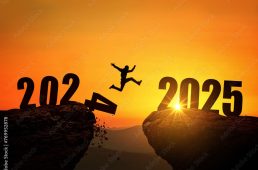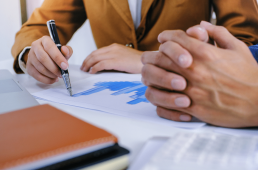What is behavioral economics?
Behavioral economics challenges the way we perceive the concept of “rationality.” Rational thinking in the economic sphere is defined as: “Making a decision that produces the greatest benefit for the decision maker, taking into account all the information available to him.”
Utility is, of course, subjective. For example: “I choose to save and suffer a little now so that I can retire and enjoy in the future, because I value my future well-being more than my comfort in the present” or alternatively: “I choose to buy these shoes now because I know that the pleasure they will bring me now is greater than the economic damage that will be caused to me in the future.” The second saying is just as rational as the first, because in both situations we are aware of the consequences. But what if the way we set priorities—”I prefer A to B, because A benefits me more”—is prone to calamity?
Is behavioral economics scientific?
In 2014, researchers performed the most accurate computerized image of the brain up to that time. The supercomputer took forty minutes to process and simulate one percent of the brain’s total activity[1].
The human spirit is infinitely complex. Therefore, it is not surprising that science is still far from understanding all the processes that make up the human conscious.
Some branches of economics join other sciences in trying to understand what people’s decision-making processes consist of. Economists tackle these problems by building abstract models that purport to explain reality. As in other sciences that are in their infancy, these models sometimes contradict each other and sometimes even fail to anticipate and explain imbalances in economic systems. A famous anecdote tells how economics, as a field of research, deals with increasing the time span between economic crises – from once a year to once a decade. Ironically, macroeconomic models still fail to prevent severe economic crises from recurring on average once every seven years[2].
However, we should not condemn the economy and condemn it as useless. It is important to remember that certain economists are the ones who thought against the current and against the spirit of the times, and they are the ones who devised plans that rescued superpowers from the worst crises in history. For example, John Maynard Keynes, who founded a new school, was active during the Great Depression between the world wars, a period of uncertainty and lack of economic horizon. Keynes, a revolutionary economist, protestingly withdrew from the Paris Peace Conference in 1919 over the reparations payments imposed on Germany, claiming that they would lead to another world war. A terrifying scenario that in retrospect turned out to be true. The economist was a pioneer in his thinking and believed that government intervention in the markets would ensure economic growth. To this day, heads of state use Keynes School theories to deal with economic crises.
Innovative thinking is what drives research. Especially at a time when all existing teachings fail to explain and anticipate reality. Seventy years have passed since Keynes’s The Economic Theory of Employment, Interest and Money was published, and it seems that economic crises are still on the agenda of decision makers, and academics are still far from understanding why market participants act the way they do. In the shadow of the last economic crisis in 2008 and against the background of the global economic slowdown, it became increasingly important to understand the reasons why the individual acts the way he does, because ultimately all the details add up to the economy as a whole. In recent decades, an interesting trend of combining fields, such as economics and psychology, has begun. Economists stopped claiming to know how to explain how people think and why they do not always act rationally but against their own benefit (as the father of modern economics, Adam Smith, believed), and turned to psychology for insights.
Israelis and Behavioral Economics Research
Amos Tversky and Daniel Kahneman, two Israeli researchers, psychologists by training, have contributed greatly in their research to understanding the psychological mechanisms responsible for people’s decision-making. Kahneman, who won the Nobel Prize in Economics for his research (the Nobel Prize is awarded to people in their lives, so Tversky, who was not alive at the time, did not win it) continued to write a book on the subject: “Thinking Fast and Thinking Slow“, which gained sympathy even outside the world of academia. In his book, Kahneman emphasized the difference between impulsive-fast thinking, which carries more risks, and slow-considered thinking. This is not to say that impulsive thinking is necessarily negative. Fast thinking is necessary in everyday life where there is no time to consider individually and with full attention every problem we encounter. However, it tends to downplay long-term dangers, and has the power to justify behavior that society perceives as negative. For example, impulsive thinking is one of the reasons tobacco smokers respond to the urge to smoke and downplay the health effects of cigarette smoking (apart from their biologically addictive nature).
The contribution of Tversky, Kahneman and other researchers to the understanding of behavior patterns is enormous. Before their arrival, classical and neoclassical economics held that all members of the economic space were rational. In other words, any person facing a situation in which he is required to make a decision, whether financial or not, will make the best decision taking into account the information given to him. These paradigms do not explain why, for example, we apply certain norms in our decisions when money is at stake, and different norms in situations where money does not enter the equation. They don’t explain why in situations where money isn’t involved, we tend to be more generous, for example, why we insist on giving up the last chips on the plate, but don’t dare seriously think about voluntarily giving up the last coin in our wallet. This example may sound a bit amusing and insignificant, but it can shed light on how we make more important decisions.
Another Israeli psychologist, Dan Ariely, whose contribution is also great to the study of behavioral economics, deals with understanding rationality in our actions and their absence. Arieli was the first to recognize the “zero price” effect. According to classical economics, there is no special preference of people for a product when it is offered for free. In other words, according to classical theory, the increase in demand for a product as a result of a decrease in its price from eleven agorot to one penny should be equal to an increase in demand when the price of the same product drops from ten agorot to zero agorot. In reality, the situation is different: when the price of a product drops to zero, demand for it skyrockets disproportionately. According to Arieli, the explanation for this lies in the psychological effect of choosing a situation “without drawbacks.” The fewer disadvantages a situation has, the more disproportionately strong the positive response effect will be. This conclusion may sound obvious, but it is important to understand that rationality in the individual, as understood by economists until now, serves as the cornerstone of theories that discuss entire economies.
Behavioral economics has many things to offer, not only for academics but also for consumers. Many everyday decisions are influenced by irrational impulses and thinking. Behavioral economics as a field of research has enormous potential to contribute to the improvement of the economy, among other things by educating consumers to correct financial and economic thinking. Although the human brain is too complex to understand, investing in proper education can contribute to better prioritization and therefore to making smarter decisions. Being aware of bad habits and the reasons for them, such as our tendency to let urges take over sound thinking, can help us make better decisions.
[1]
http://www.telegraph.co.uk/technology/10567942/Supercomputer-models-one-second-of-human-brain-activity.html
[2]
An article by The Economist reviewing financial crises that have occurred throughout history



